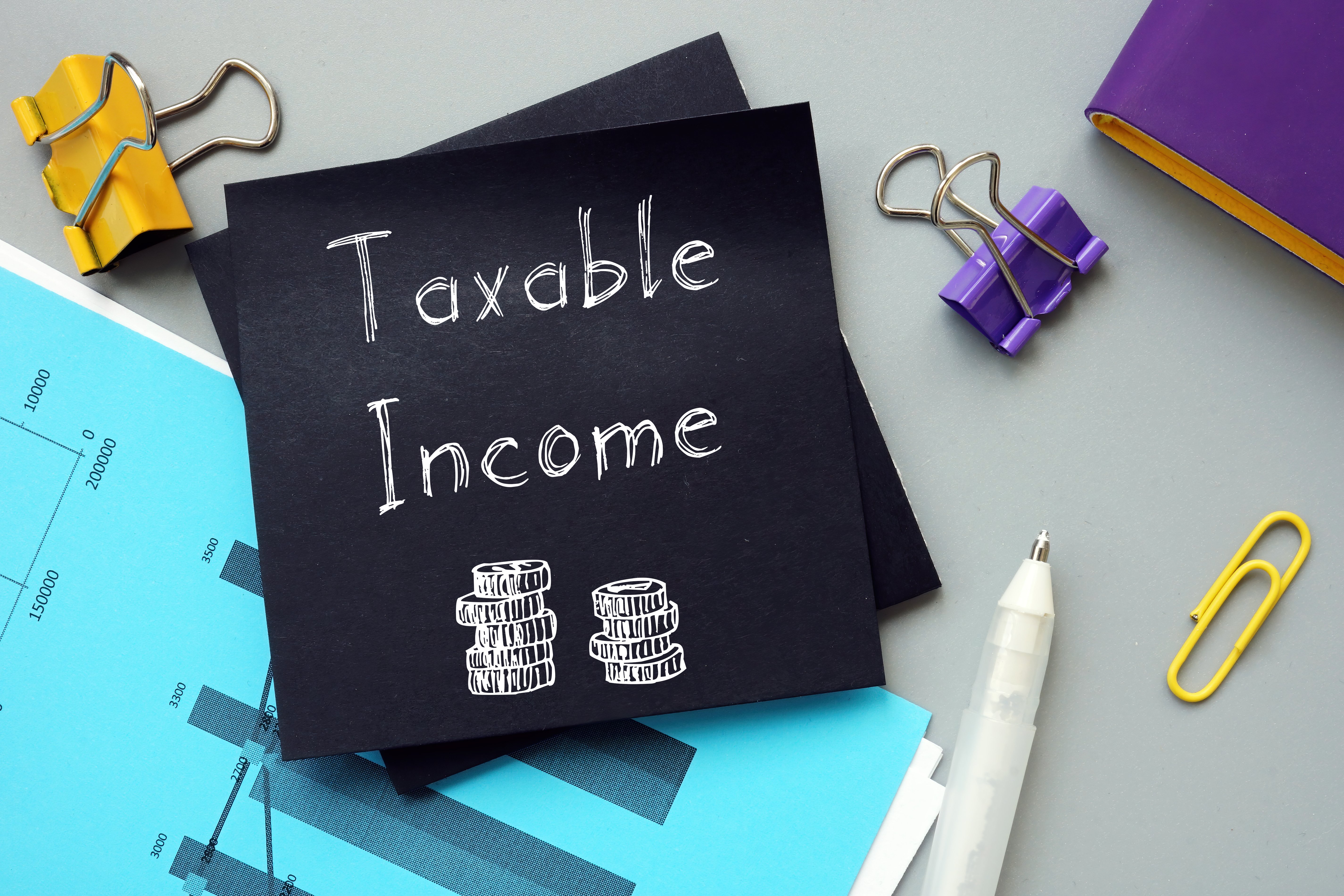4 min read
My Income In Retirement: Is that Taxable?
By: Kyle Walters - The Personal CFO on Jan 27, 2024 6:25:20 AM

Welcome to the golden years of retirement! While this phase of life can bring much-earned relaxation and time for hobbies, it's also a time when understanding the tax implications of your income becomes crucial. Gone are the days when a simple W-2 form dictated your tax responsibilities.
Retirement income is diverse and often comes with its own set of tax rules. Whether it’s your Social Security benefits, pension income, or withdrawals from retirement accounts, each source has unique tax considerations. Let's unravel these complexities to help you navigate the tax landscape in retirement efficiently.
Income Sources And Their Tax Implications
-
Social Security Benefits: For many, Social Security is a significant retirement income source. However, how these benefits are taxed can be surprising. If your combined income (your adjusted gross income + nontaxable interest + half of your Social Security benefits) exceeds certain thresholds, up to 85% of your benefits may be taxable.
-
Pension Income: Pensions, whether from government or private sector jobs, are typically taxable at ordinary income rates. However, if you contributed post-tax dollars to your pension, a part of your payout might be tax-free. Understanding the nuances of pension income taxation is vital for your financial planning.
-
Retirement Account Withdrawals: The tax treatment of withdrawals from retirement accounts like 401(k)s and IRAs hinges on the account type. Traditional accounts defer taxes until withdrawals, while Roth accounts offer tax-free withdrawals because contributions are made with after-tax dollars.
-
Investment Income: Income from investments, including dividends, interest, and capital gains, has its own tax rules. Lower tax rates on qualified dividends and long-term capital gains can benefit retirees.
-
Rental Income: If you own rental property, the income received is taxable. However, the tax can be offset by deductible expenses like maintenance, mortgage interest, and depreciation.
-
Annuities: For those who have invested in annuities, understanding the tax aspects is key. The taxable amount of an annuity payment depends on whether it was purchased with pre-tax or post-tax dollars.
-
Part-Time Work: Many retirees choose to work part-time. This income is taxable and can affect the taxation of Social Security benefits. We'll explore how to balance part-time work with other retirement income to optimize tax outcomes.
Unique Situations And Lesser-Known Taxable Events
-
Sale of Property: The capital gains from selling property, especially a primary residence, can impact your taxes significantly. While there are exclusions available, understanding the rules is crucial to avoid unexpected tax bills.
-
Inheritance and Gifts: Inheriting assets or receiving large gifts can have tax implications, both for the giver and the receiver.
-
Life Insurance Payouts: Generally, life insurance payouts from death are tax-free. But certain scenarios, like cashing in a policy early or receiving dividends from the policy, can have tax consequences.
-
Health Savings Account (HSA) Withdrawals: HSAs offer tax-free withdrawals for qualified medical expenses, making them a valuable tool for retirees.
Tax Reporting in Retirement: Navigating Forms and Requirements
-
Forms for Retirement Account Withdrawals (1099-R): If you've taken withdrawals from retirement accounts like IRAs or 401(k)s, you'll receive a Form 1099-R. This form reports the amount withdrawn and the taxable portion. It's important to ensure that these amounts are reported correctly on your tax return.
-
Social Security Benefit Statements (SSA-1099): Social Security benefits are reported to you on Form SSA-1099. This form will show the total amount of benefits received, which you’ll need for determining the taxable portion of your Social Security income.
-
Pension and Annuity Income (1099-R): Like retirement account withdrawals, pensions and annuities also generate a 1099-R. This form will report any income you received from these sources.
-
Investment Income (1099-DIV, 1099-INT, 1099-B): For income from investments, including dividends (1099-DIV), interest (1099-INT), and proceeds from the sale of investments (1099-B), you will receive corresponding forms. These forms are essential for accurately reporting investment income and capital gains.
-
Rental Income Reporting: If you own rental property, there's no specific form sent to you for rental income. You're responsible for keeping track of this income and reporting it on Schedule E of your tax return.
-
Income Without Forms: In some cases, you might receive income without an accompanying tax form. For instance, small part-time jobs, hobby income, or small payments for services may not trigger a tax form. However, it's important to remember that all income, regardless of whether a form is received, is taxable and must be reported.
-
Understanding Form 1099-K: If you engage in transactions through third-party networks or payment processors, you might receive Form 1099-K. This form reports payments received through these platforms. With recent changes, lower thresholds for reporting mean you're more likely to receive a 1099-K even for smaller transaction volumes.
-
Reporting Gifts and Inheritances: Generally, recipients of gifts and inheritances don’t need to report these as income. However, there are exceptions, especially with large amounts. Gift givers, not recipients, are often responsible for reporting gifts over a certain threshold using Form 709.
Planning for Tax Efficiency in Retirement
Creating a tax-efficient retirement strategy involves understanding the interplay between different income sources and their tax implications. Make sure to consider:
- Balancing withdrawals from taxable and tax-advantaged accounts.
- Utilizing lower tax brackets effectively.
- The importance of timing in realizing capital gains and losses.
- Why consulting with a financial/tax professional can save you money in the long run.
Retirement should be a time of enjoyment, not stress over taxes. By understanding how different retirement income sources are taxed, you can plan more effectively and enjoy your retirement years with peace of mind. Stay informed, and don’t hesitate to seek professional advice tailored to your unique financial situation.
Related Posts
If you're retired, does a Roth conversion make sense?
As we approach the end of the year, you may be doing some strategic tax planning. Your strategy may...
7 Ways To Lower Your Taxes In Retirement
Let's start with the bottom line: you will have more money in retirement if you know how to lower...
Managing Quarterly Tax Payments in Retirement: Key Points to Consider
Transitioning into retirement comes with various shifts in financial responsibility, including how...


